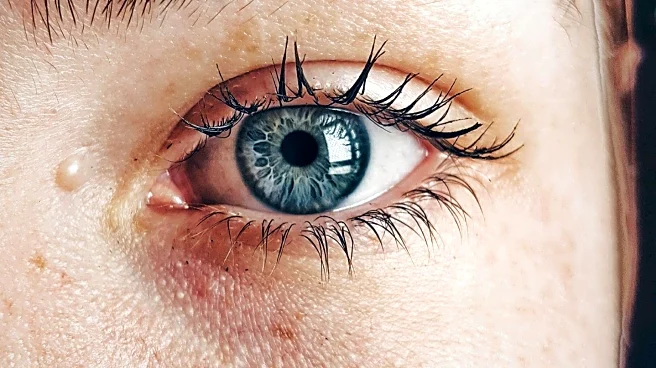What's Happening?
Juliette Cosgrove, a former NHS donor coordinator, is advocating for increased cornea donations following the death of her sister, Louise Cosgrove, in a car accident. Louise had intended to donate her organs, but due to the circumstances of her death, only her corneas could be donated. Juliette emphasizes the importance of organ donation, noting that her sister's cornea donation provided comfort to their family. The NHS reports a decline in cornea donors, with a 3% drop in the past year, while demand for cornea transplants remains high. Kyle Bennett from NHS Blood and Transplant highlights the need for more donations to meet the demand and transform lives.
Why It's Important?
The decline in cornea donations poses a significant challenge for the NHS, as thousands of individuals await life-changing eye surgeries. Cornea transplants can dramatically improve the quality of life for recipients, making the need for donors critical. Juliette's advocacy underscores the importance of discussing organ donation wishes with family members, which can facilitate the donation process and provide solace in times of grief. Increasing awareness and encouraging conversations about organ donation could potentially boost donor numbers, helping to alleviate the waiting list and improve healthcare outcomes.
What's Next?
The NHS continues to call for more individuals to register as organ donors, particularly for corneas, to address the current shortage. Juliette Cosgrove's story may inspire others to consider organ donation and discuss their wishes with loved ones. The NHS aims to increase donor numbers to meet the weekly requirement of 70 donors, ensuring that those in need of cornea transplants receive timely and life-changing surgeries. Public campaigns and educational initiatives may be employed to raise awareness and encourage more people to become donors.
Beyond the Headlines
The ethical considerations surrounding organ donation are complex, involving personal beliefs and family dynamics. Juliette's experience highlights the emotional impact of organ donation decisions and the potential for positive outcomes amidst tragedy. The cultural reluctance to discuss death and organ donation may hinder donor registration, suggesting a need for societal shifts in attitudes towards these topics. Long-term, increased donor registration could lead to improved healthcare systems and reduced waiting times for transplants.











